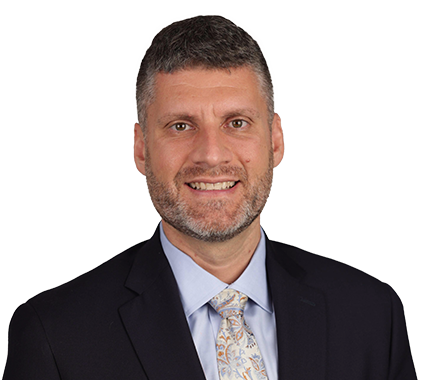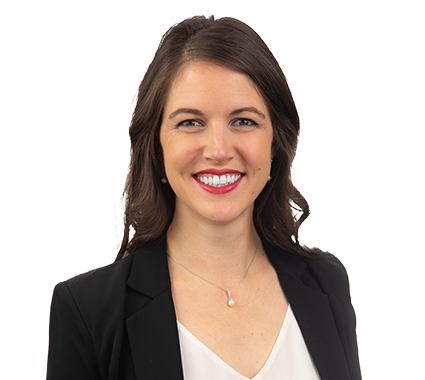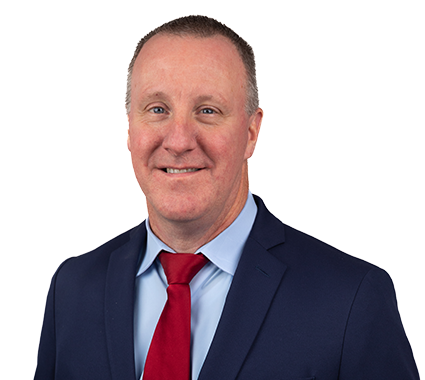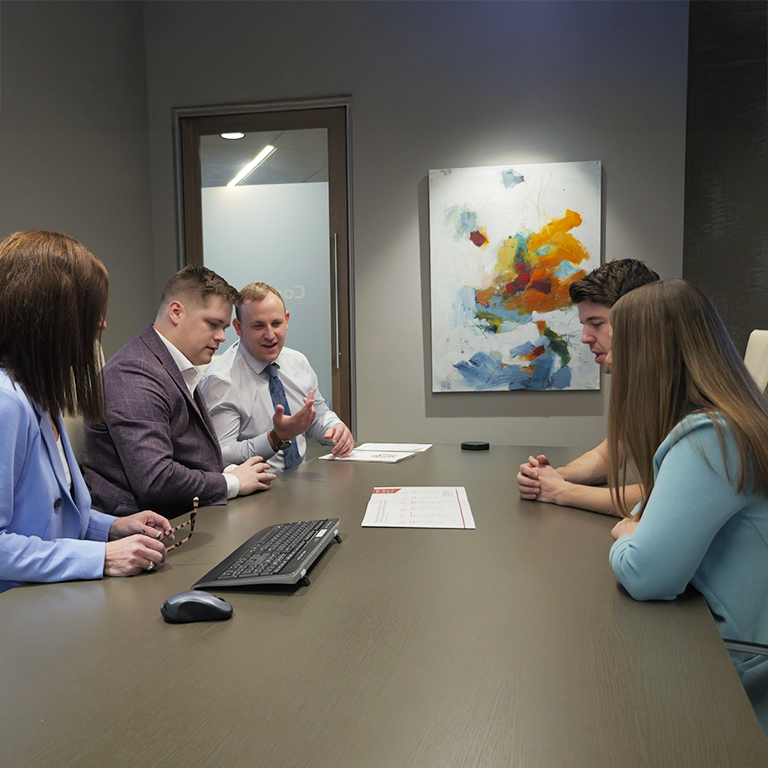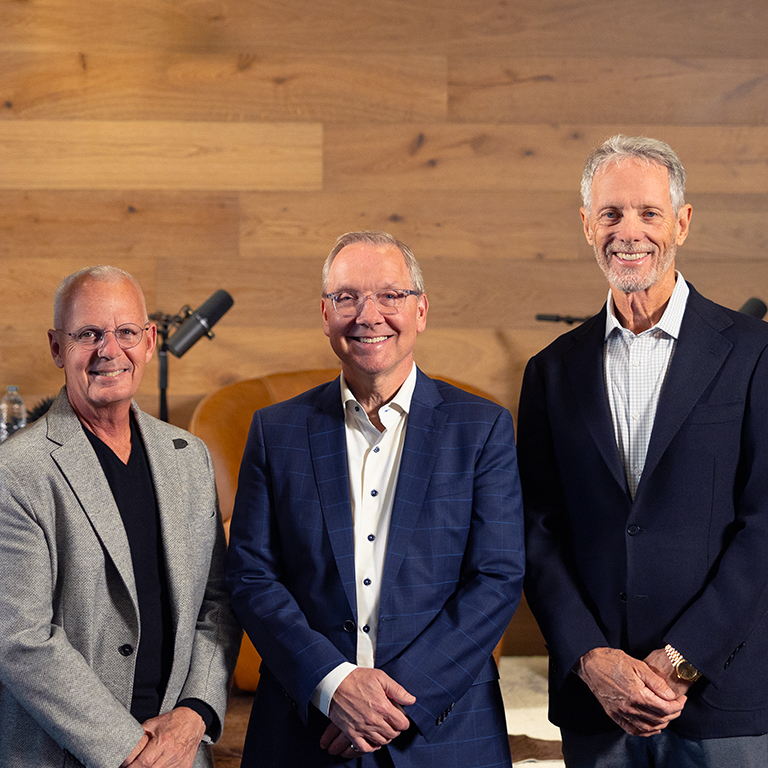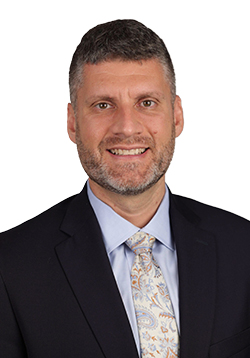
Keeping the lights on in your house all day sounds like a huge waste of money, right? And yet, Angela Giombetti makes it make sense.
On the latest episode of Common Cents on the Prairie™, Angela, head of marketing at Wealthspire Advisors, offers me a deep look into her financial journey — including the reason she literally leaves the lights on all the time.
You can read a recap of our conversation below, watch the full episode on YouTube, or find it on your favorite streaming platform!
Keeping the lights on
Adam: Angela, when did you first become aware of money?
Angela: I was born in Japan and spent the first few years of my life there. There was a little market a few blocks from our apartment, and my mom would bring me and my sister and pick up a few things for dinner. There was one of these machines outside called Gashapons, and they cost a hundred yen.
A hundred yen was just a coin, and, to this day, I could still feel that coin in my hand. My mom would give me one and say, “Go ahead and get a little figure.” And I remember wanting so badly to get another one of these figures that I went to my mom in the kitchen and said, “Can I have a hundred yen?”
And she said, “Sure, go ahead.” What she didn’t realize was that I thought of that as, basically, she’s telling me I’m ready to go out into the world on my own. So, I put on my Hello Kitty sandals and marched my way alone to get this little figure.
I think my mom realized halfway through, “Oh my gosh, my 4-year-old is walking by herself,” and I had already come back with my prize. I just remember, like I said, the feel of that coin and thinking I just felt so free. I felt so empowered. That’s the first time I remember being really aware of money.
Adam: One thing you’ve told me was, “You know, I keep my lights on in my house almost all the time now as an adult.” Tell us why you do that.
Angela: For the longest time, I equated darkness with poverty. Because there was a big period of growing up where, when I came home from school, the lights might be out for one of two reasons. First, my parents didn’t pay the electric bill, so the power was cut.
The second reason would be my parents hiding from bill collectors. True story. They knew that at any moment someone might show up, so we better shut off all the lights and be quiet and hang out in the back.
So, as soon as I was living on my own, I thought, “I can turn this light on. And I’m going to turn the bathroom light on. I’m going to keep them all on all the time until I go to sleep!”
The other thing was hanging stuff on the walls, because everything in my childhood felt very temporary. So, the minute I had walls of my own, I was painting them orange and hanging pictures of my cats. [Both laugh] And you don’t realize how much your behavior is impacted by those early experiences.

Adam: At what point, growing up, did you realize that other people lived differently?
Angela: When I was seven or eight. You start going over to friends’ houses, you start doing these sleepovers and stuff, and you realize they have birthday parties. They go on family vacations. And not just that fancy stuff, but they have chores, and those chores equate to an allowance.
So, I found myself envying my friends for having chores. I would go over to my friend’s house and be like, “I’ll dust. Could I have a buck for that?” Because I loved the idea that there was this structure. My friends were like, “Go ahead and dust!”
Adam: I can remember the exact moment in my life when I made the connection between money and work — and how impactful that was for me. I was weeding a neighbor’s landscaping for $4 an hour, and I looked up at my watch and it was three o’clock. I went back to work, looked at my watch again, and it was 3:15. I was like, “I just made a dollar. That’s awesome.”
So, as you think back to your childhood, I’m sure a few big money moments stand out to you. What are those?
Angela: There are a couple. My mom had recognized, at some point, “We’re going to be in this apartment forever. Our credit is always going to be bad. I have to do something.”
She had had one job, and she decided to go get a business certificate so she could have steady employment — even if it was $5 an hour. Because she knew that was the path to getting her kids a home. So, I watched her and this work ethic, where she’s killing herself to provide for us. I couldn’t have had a better role model.
And on the other side of that, you’ve got my dad who never grew up, and he has always had an addictive personality. I remember sitting at the kitchen table with my mom, and she’s sewing — because that was one of her three jobs — and my dad had come home and, out of nowhere, goes, “Listen, I blew the unemployment check gambling.”
That he had done that stayed with me so much that I thought: here’s what to do to get where you want to go, and here’s what never to do.
Adam: How do you think these experiences with your folks impacted your early relationships, especially when it comes to money?
Angela: Seeing how my dad was, I absolutely wanted the opposite of that — boring, stable, driven, and someone who really understands money. So, I found myself really gravitating toward men who just kind of took care of everything.
What I found out the hard way was, because I didn’t know anything, I had no concept of how much money we had in my first marriage. And then I got this wake-up call one day, where I came home from work and my husband said, “Hey, you’re going to want to sit down. Listen, not a big deal, but we’re getting audited by the IRS.”
He had started his own business, and he said, “Well, I just figured that the IRS would give me like a year or two to get my taxes figured out.” So, fast forward, we’ve got accountants and lawyers, and everybody is looking at all the stuff.
At this point, I’m having some realizations. One is: I have signed everything you’ve put in front of me for six or seven years. The second was: why am I in this relationship? And the last thing was the shock when we got the bill; it was close to $80,000 that we owed. I don’t care how much money you have — that was a lot.
Adam: That’s real money.
Angela: I thought we were going to get kicked out of the house. And his reaction was, “Oh, no, we have that money. It’s cool. It’s fine. I’ll just write a check.” I know that was meant to bring me security, but it did the opposite.
Adam: It probably put you right back to being a kid, and some of those same feelings.
Angela: I was so transported back to, “The lights are going to be turned off.” Like, are we going to get kicked out? Should I take the stuff off the walls?
Adam: What do we do with the cat pictures?
Angela: They’re coming with me! [Both laugh]
Adam: What money advice would you give your younger self?
Angela: Educate yourself. Be confident. Ask questions. Where is that money going? What happens if I put this in my savings account? What is interest?
The other advice is: don’t close that retirement account that you opened when you were 19, you idiot!
You don’t have to wait until you’ve made money mistakes to get great financial advice. Our experts at First National Wealth Management are happy to answer any questions you have along the way — just send us a note!
And, check out the episode “How to Change Your Money Destiny” for tips on owning your past financial trauma.
Any comments, insights, or strategies discussed in this article are intended to be general in nature and, therefore, may not be suitable for you and your situation, whatever that may be. Before acting on anything written here, please consult with your attorney, CPA, and/or your financial advisor.
